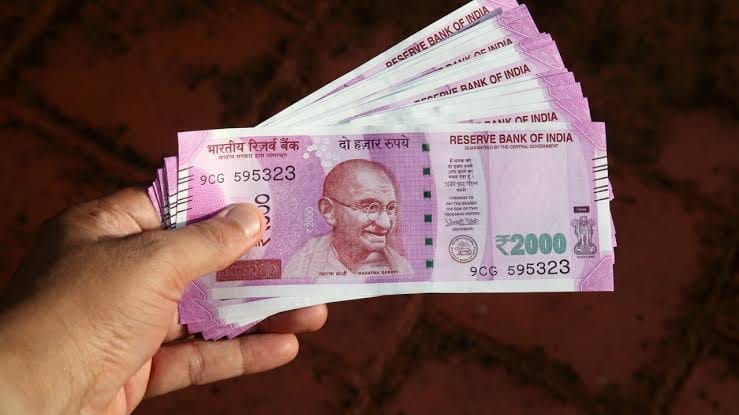
The State Bank of India (SBI) has issued a statement to all its branches clarifying that no form or identity proof is required for exchanging Rs 2,000 notes, which were recently withdrawn from circulation by the Reserve Bank of India (RBI). In a circular dated May 20, the bank stated that individuals can exchange Rs 2,000 notes up to a limit of Rs 20,000 without submitting any requisition slip or identity documents.
This clarification from the bank comes in response to rumors and misinformation circulating on social media, which falsely claimed that individuals need to submit a form along with identity proof, such as an Aadhaar card, for exchanging the notes.
The RBI surprised the public by announcing the withdrawal of Rs 2,000 currency notes from circulation. However, unlike the sudden demonetization of old Rs 500 and Rs 1,000 notes in November 2016, the Rs 2,000 notes will remain a legal tender. The public has been given time until September 30 to either deposit the notes into their accounts or exchange them at banks.
The SBI, in a communication to the chief general manager of all its local head offices, confirmed that individuals can exchange Rs 2,000 notes up to a limit of Rs 20,000 without the need for a requisition slip. This step aims to provide convenience to the public during the note exchange process.
It is important for individuals to be aware of the correct information and not be misled by false rumors. The SBI’s clarification ensures that the exchange of Rs 2,000 notes can be done smoothly and without unnecessary documentation requirements.
Regarding the deposit of Rs 2,000 notes into one’s own account, the RBI has not specified any limit. However, the deposit will be subject to compliance with the existing Know Your Customer (KYC) norms and other applicable statutory requirements.
The communication dated May 20 reiterated that no identity proof is required to be submitted by the tenderer at the time of exchange. The State Bank of India (SBI) has instructed its local head offices to provide all necessary cooperation to the public to ensure a smooth and seamless exchange process without any inconvenience.
Sources indicate that individuals can stand in the queue any number of times for the exchange of Rs 2,000 notes. Although the facility for exchange is available from May 23, many customers visited their branches with the Rs 2,000 notes on Saturday, only to be informed about the start date for exchange by bank officials.
Some customers resorted to using cash deposit machines on Saturday to deposit their Rs 2,000 notes into their accounts. Others attempted to purchase gold and other precious metals from jewelry shops. However, jewelers in many parts of the country are hesitant to accept Rs 2,000 notes and are asking for KYC beyond the prescribed cash purchase limit.
The Confederation of All India Traders (CAIT) believes that the withdrawal of Rs 2,000 notes by the RBI will not impact small traders but may affect the larger and affluent class who may have accumulated large quantities of Rs 2,000 notes. CAIT does not anticipate any disruptions in trade activities as a result of this move.
For breaking news and live news updates, like us on Facebook fb.com/thevoiceofsikkim or follow us on Twitter twitter.com/thevoicesikkim and Instagram instagram.com/thevoiceofsikkim. Visit www.voiceofsikkim.com.




